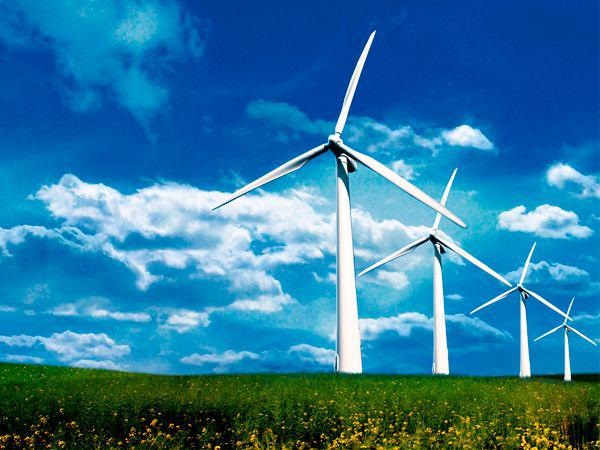
Over the years, Kazakhstan has successfully implemented its “multi-vector” foreign policy, balancing Russia, China, and the West. Although the war in Ukraine has allowed Astana to strengthen economic and political ties with Western nations, it still seeks to preserve strong relations with Moscow. But what challenges lie ahead of the Central Asian nation in 2025?
Kazakhstan is determined to construct its first nuclear power plant. On October 6, 2024, the country held a referendum in which 71.12% of voters approved the inclusion of nuclear power in their everyday lives, with a turnout of 63.66%.
The authorities now face a difficult decision on which company will build the atomic site, choosing between the China National Nuclear Corporation (CNNC), Russia’s State Atomic Energy Corporation (Rosatom), Electricity of France (EDF), and Korea Hydro and Nuclear Power from South Korea (KHNP).
As Kazakhstan’s President Kassym-Jomart Tokayev repeatedly stressed, an international consortium of leading global companies with advanced technologies should be involved in the project. Although Rosatom is not subject to Western sanctions, it remains uncertain whether the West will allow its companies to collaborate on a joint project with the Russian nuclear giant.
Moreover, after Rosatom decided to sell its stakes in several jointly developed uranium deposits in Kazakhstan to Chinese-owned companies, its role in Central Asia’s uranium resources is expected to diminish.
However, Russian President Vladimir Putin's holding several meetings and phone calls with Tokayev following the referendum in Kazakhstan indicates that Moscow is unlikely to relinquish its energy interests in Kazakhstan easily.
Therefore, Astana will have to find a delicate balance in its nuclear policy, especially given that France, one of the world’s largest atomic energy producers, has clearly shown its ambitions to play a significant role in constructing Kazakhstan’s first nuclear power plant.
On November 4, a day before the summit between Tokayev and his French counterpart Emmanuel Macron in Paris, French and Kazakh officials signed 24 documents on cooperation worth $2 billion. Unsurprisingly, energy was a central focus. Kazakhstan agreed to establish closer ties with two French nuclear giants: EDF and EDF.
But now that China has gained a foothold in the energy-rich nation’s uranium mining sector, Astana will likely continue insisting on an international consortium to build a nuclear power plant in Kazakhstan.
Such an approach perfectly aligns with Astana’s “multi-vector” foreign policy. As Roman Vassilenko, Kazakhstan’s deputy foreign minister, recently stressed, mutual benefit and win-win outcomes, rather than mutual exclusion and zero-sum games, are the major drivers of Astana’s diplomatic strategy.
The essence of this approach is to establish mutually beneficial ties with countries beyond Kazakhstan’s large neighbours, Russia and China, including those outside its immediate borders. It is, therefore, no surprise that Tokayev, on December 18, hosted President of Guinea-Bissau Umaro Sissoco Embaló, aiming to develop cooperation in sectors such as agriculture, mining, digitalisation, transport and logistics with the African country.
On November 18-19, Tokayev travelled to Serbia to meet with the Southeast European nation’s President Aleksandar Vucic. During his visit to Belgrade, Kazakh and Serbian delegations signed several bilateral agreements, including a plan for military cooperation.
These meetings, as well as numerous summits Tokayev held with leaders of Central Asian nations, show that Astana seeks to expand ties with as many actors in the global arena as possible, aiming to increase external trade significantly.
By diversifying trade partnerships and strengthening economic ties beyond its immediate neighbours, Kazakhstan likely aims to reduce its dependence on any single power, whether it be Russia, China, or the European Union. At the same time, it seeks to develop closer cooperation with the Turkic-speaking countries through the Organization of Turkic States, indicating that in the coming year, the Turkic vector could play an essential role in Astana’s foreign policy.
More importantly, Kazakhstan’s decision to abstain from BRICS membership demonstrates that the Central Asian nation does not want to become involved in a new Cold War under any circumstances.
Although BRICS is merely an informal coalition with no common institutions and members that do not share the same views on key geopolitical challenges, it is still widely perceived as an alternative to the Western-dominated world order. Given that Astana aims to increase all forms of cooperation with the West, it is no surprise that it is interested in remaining engaged with BRICS only in an outreach capacity.
At this point, regional integration with neighbouring Central Asian states seems to prioritise Kazakhstan over potential BRICS membership. Also, further development of the Middle Corridor—a transportation link connecting China and Europe through Kazakhstan, the Caspian Sea, Azerbaijan, and Georgia, bypassing Russia—will undoubtedly be on Astana’s agenda in 2025.
However, that does not mean that the oil-rich country will seek to reduce its economic cooperation with Moscow, especially given that 80% of its oil exports pass through Russian territory.
However, as Kazakhstan navigates its complex foreign policy, it will likely continue prioritising strategic diversification to balance its relationships with global powers while maintaining sovereignty. Its ability to manage these competing interests will shape Astana’s role on the world stage in 2025 and beyond.





